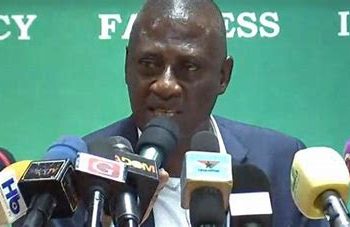Stakeholders in the Edtech industry are calling on the government to decolonise technology in schools where students will be taught stories concerning the country’s great leaders in the local dialects.
They argued that it will be worthwhile if students are taught content relating to leaders such as former President Dr. Kwame Nkrumah and others, rather than learning about the late Queen of the United Kingdom, Elizabeth II and other foreign leaders.
Making some inputs on the discussion on the April 24, 2023 episode of Edtech Monday on the Citi Breakfast Show with Nathan Quao, the Senior Research and Evaluation Manager, Education Sub-Saharan (ESSA), Samuel Nyarko Agyapong advocated for the localisation of Ghanaian content on YouTube.
“Imagine our children listening to something local on YouTube where Ghanaian stories are told in the local dialects. We should localise our content, lots of research is talking about decolonisation of the curriculum and all that. I think that when it comes to technology, we need to decolonise technology that we use, it will be great if children are learning about Osagyefo Dr. Kwame Nkrumah, learning about our great leaders and all that and not learn about the late Queen Elizabeth II, Prince Charles III and all that,” he opined.
He further suggested that technology used in schools must be engineered to align with the curriculum which forms the basis of Edtech.
Mr. Agyapong appealed to government to consider giving a laptop per child to students especially those in rural areas to bridge the educational gap.
“Technology we use in our schools should be aligned with the curriculum. That should be the basis for development of our Edtech content in education. All our policies should be data-driven, where the government can give one laptop per child especially those in the rural areas who don’t have access to internet or electricity,” he suggested.
On her part, the Chief Executive Officer of CTN Technology, Ida Padikuor Na-Tei, appealed to the government to allocate some funds for start-ups in Edtech.
“Without the resources, we cannot teach, we need more support when it comes to financing. There should be some support for start-ups as young people. Policymakers should look at supporting start-ups in the Edtech, there should be some training for us to compete on the international market,” She appealed.
Coordinator for Edtech Africa, Noble Selorm Dzreh advised parents to be interested in the education of the children from the early stages.
“It’s difficult getting people to teach Edtech, many parents are not interested in their children’s learning except in cases they fail the Basic Examination Certificate Examinations (BECE) and after WASSCE they fail, where they need to enrol them to rewrite. Parents should be interested in the learning of their children right from the basic level,” he entreated.















